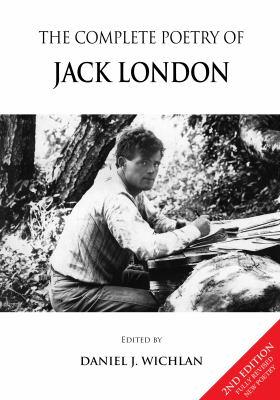Poetry
In the late 1800s, London wrote poems and doggerels, some of which he sold. He eventually recognized he lacked the lyrical craft he admired. As he explained to friend J. Torrey O'Connor, "Long years ago, before I sold my first thing to a magazine,I dabbled a little in poetry; and then resolutely I cut poetry out. From that day to this, I have never attempted a line of it despite a sneaking belief that I could develop into a pretty good poet." Had he really believed so, he would have continued writing verse. He had little commercial success as a poet, beyond bits in newspapers . Late in life wrote lyrics to tunes.
In a time without radio or television, adults turned to one another's talents to entertain at gatherings. Card games and outdoor sport featured. Parlor pianos were everywhere, with skilled fingers ready to accompany voices. In addition to music, when London entertained poetry read aloud was a common activity. The poets of his era were various in style: the Rosettis, the Brownings, Le Gallienne, Henley, Swinburne, Dryden, Byron, and others. Local poets such as Ambrose Bierce or George Sterling contributed their latest writing,
Poetry influenced his fiction and nonfiction in beneficial ways. Verse is found throughout his prose writing. There he quoted Kipling, Wordsworth, Goldsmith, Ashe, Tennyson, Shakespeare, and others. More significant, his familiarity with poetry affected his language. His best writing resonates with thymic lyrical writing with layers of symbolic meaning. This is most evident in Call of the Wild and White Fang, as well as his short stories. Accordingly, his weakest stories lack linguistic richness and rhythm. Driven to use writing to support himself and his families, he was realistic enough to exclude writing poetry from his daily labor. But it was always present in his mind as it formed the structure of his sentences.
One comprehensive study will take the interested reader fully into this theme:

Daniel Wichlan, The Complete Poetry of Jack London, New London: Little Red Tree Press, 2nd. edition, 2014
This is a seminal book-fully revised with new poetry and photographs-of exploration and discovery into the literary genesis of Jack London, one of American's most famous authors. It brings together all the poetry of Jack London to support the assertion that he was first and foremost a poet who wrote fiction and nonfiction and not a writer of fiction and nonfiction who also wrote poetry. After more than 30 years of research in all the known depositories and databases of Jack London material, Wichlan publishes his groundbreaking research and analysis. The book contains the poetry embedded in London's writing and correctly identifies previously uncredited authors and defines the poetry probably written by Jack London. He found almost twenty published poems and two dozen in manuscript form.
Included in this book are two published plays in verse, "The First Poet" and "The Acorn Planter," and book inscriptions Jack London wrote in his first editions given to his first wife, Bessie Maddern, their children and his second wife, Charmian London. Twenty-eight pages from his first log book "No 1-Magazine Sales" are reproduced, which reveal the true extent of London's avid study of classical prosody taken from a previously unknown source. In an extended introduction Dan Wichlan cites many examples and quotes from London's 55 books, numerous letters, and descriptions of his life with poetry from Charmian London's biography of her husband. Dan connects and links London's words and actions from many sources to support the central theme of the book that Jack London was a poet and his lyrical prose style a direct consequence of prosodic studies, poetic aspirations and a lifelong passion for poetry. Therefore, this book is essential reading for those interested in discovering the true Jack London.

